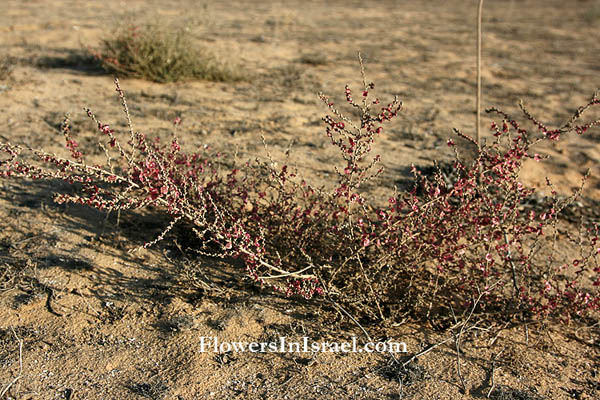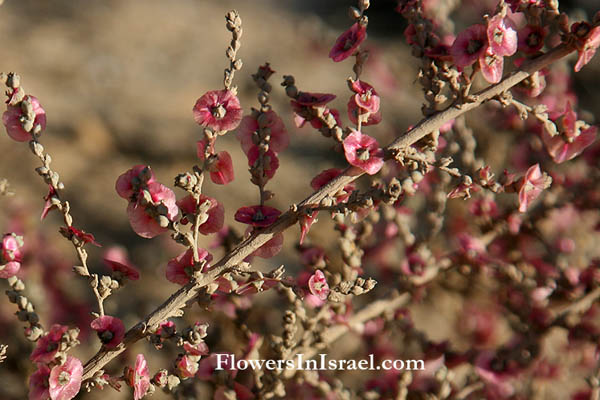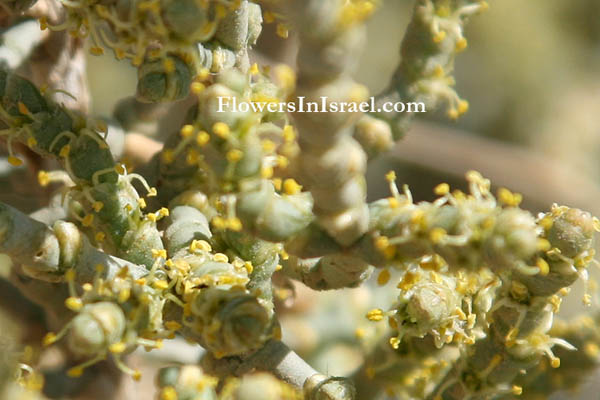
| Scientific name: | Anabasis articulata (Forskk.) Moq. | |
| Synonym name: | Salsola articulata Forskk. | |
| Common name: | Jointed Anabis | |
| Hebrew name: | יפרוק המדבר | |
| Arabic name: | الشَّنَّان المفصلي | |
| Family: | Chenopodiaceae, סלקיים |

|
| Life form: | Chamaephyte | |
| Succulence: | Stem succulent | |
| Stems: | Articulated stems | |
| Leaves: | Opposte, scale | |
| Flowers: | Green | |
| Fruits / pods: | Small fruit containing one seed with a coiled embryo | |
| Flowering Period: | October, November | |
| Habitat: | Shrub-steppes, Desert | |
| Distribution: | Semi-steppe shrublands, Shrub-steppes, Deserts and extreme deserts | |
| Chorotype: | Saharo-Arabian | |
| Summer shedding: | Perennating |

Derivation of the botanical name: Anabasis, Ἀνάβασις, ana, "up" + bainein, "to go". articulata, jointed, as in plants such as bamboos and horsetails. Salsola, from Latin salsus for "salty". The Hebrew word: יפרוק, yifrok , jointed, composed of articulated segments. The Hebrew word: המדבר, midbar, the desert.
Anabasis articulata, the Bedouin calls it 'ajram, is part of the hamdh pasture (salty and sour plants), pasture necessary for curing the disease ja'am ( Various parasites, carried by annual plants, give the animals a serious intestinal disorder called ja'am). The main cure for ja'am is to let the livestock graze on hamdh pasture (salty and sour plants) at the end of the season, generally in May. The bedouins also utilize plants in a variety of manufactures, some of which are essential to their daily existence. Anabasis articulata is used as a Laundry soap (process: burn to ash; put ash in cloth; scrub wet clothes with cloth). See the list of Medicinal herbs in Israel, the parts used and their medical uses to treat various diseases. Bible resources:

|